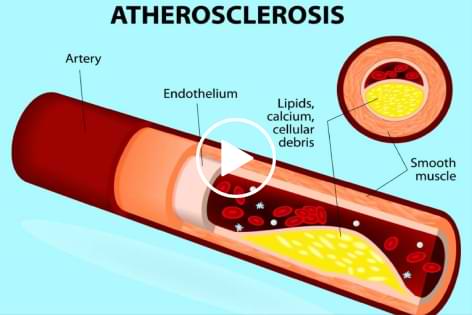
LMU 21 – Supplements Proven to Enhance Efficacy of Antidepressant Medication
Source: The American Journal of Psychiatry (June, 2016)
Lifestyle Medicine Update (August 23, 2016)
If you’ve ever suffered from depression or know someone who has, you’ll want to know about a study published in June, 2016, in The American Journal of Psychiatry. In recent years, a number of clinical trials have shown that taking certain supplements in conjunction with antidepressant drugs can actually enhance their efficacy and improve outcomes for patients suffering from depression.
This means, adding specific supplements to an antidepressant medicine regime has been shown to speed up recovery time, improve responses in patients who were not previously responding to medication, or provide a more complete recovery and/or reduced relapse rate. This is important because overall, just 30-40% of patients with major depression have only a partial response to the use of antidepressant drugs and psychotherapy treatment – when you factor in relapse rates.
In a combined effort, researchers from the University of Melbourne, and researchers from Harvard University, examined 40 clinical human trials worldwide, alongside a systematic review of the evidence, examining the use of supplements as an adjunct to the treatment of depression. After reviewing all the worldwide studies performed up to December, 2015, they published their findings in the June, 2016 issue of The American Journal of Psychiatry. What they publisehd was the discovery that current research supports the addition of certain supplements to antidepressant medication management of depression, as it can increase the effectiveness of antidepressants for people with clinical depression.
This was especially true for 4 specific supplements, including:
- Omega-3 fats from fish oil
- SAMe (S-adenosylmethionine)
- Methylfolate (a form of the B-vitamin folic acid)
- Vitamin D
Each of these supplements boost the effectiveness of antidepressant medication.The strongest evidence was for Omega-3 fats from fish oil. The brain requires Omega-3 fats to improve what’s known as brain fluidity. With improved brain fluidity, the receptors on brain cells can more easily receive signals from the “feel good” brain chemicals, like serotonin, dopamine and norepinephrine. Antidepressant drugs help the brain increase levels of these mood-enhancing chemicals but brain cells need to have sufficient fluidity for their receptors (or “antennae”) to receive the message from the mood-enhancers. If the brain hardens, which can result from eating too much saturated fat or trans-fats, or insufficient omega-3 fats, then the brain cell receptor system is much less effective.
So, Omega-3 fats have been shown to improve the effectiveness of antidepressant drugs by improving brain fluidity. Omega 3 fat supplementation also:
- decreases brain inflammation,
- improves blood flow through the brain’s blood vessel network,
- and may help improve nerve conduction or electrical transmission (communication) between nerve cells.
Some studies also show that it may help block the build up of beta-amyloid plaque – a hallmark feature of Alzheimer’s disease. A number of studies suggest that a higher intake of Omega-3 fats help to reduce risk of Alzheimer’s disease.
For all these reasons, Omega-3 fat supplementation from fish oil is a supplement to strongly consider.
The supplements SAMe and Methylfolate work by helping the brain synthesize more of mood-enhancing chemicals like serotonin, dopamine and noradrenaline. Antidepressant drugs slow the breakdown of mood-enhancing drugs, but only certain supplements like SAMe and Methylfolate can actually help the brain synthesize more mood-enhancing chemicals.
As for Vitamin D, studies show that Vitamin D is required to help the brain make serotonin, which is the ultimate feel good brain chemical or neurotransmitter.
My point is, many doctors don’t read The American Journal of Psychiatry every month, and therefore may not see this ground-breaking review paper. If you suffer from depression, or have suffered from depression, you may want to forward a link to this research article to your doctor. Or, you may want to provide the link to a friend of family member who suffers from depression, so they can forward it to their doctor. Hopefully, your doctor, or their doctor, will review the evidence and recommend an established daily dosage of one or more of the supplements highlighted in this review as a means to increase the effectiveness of the prescribed antidepressant medication.
I’ve attached a link to the research article and review in the text below.
References:
1. Sarris, J., Murphy, J., Mischoulon, D., Papakostas, G.I., Fava, M., et al. Adjunctive Nutraceuticals for Depression: A systematic review and meta-analysis. American Journal of Psychiatry, 2016, Vol. 173, issue 6, pp: 575-587.http://ajp.psychiatryonline.org/doi/10.1176/appi.ajp.2016.15091228
2. https://www.sciencedaily.com/releases/2016/04/160426091725.htm
Eat Smart, Live Well, Look Great,
Dr. Meschino
If you’ve ever suffered from depression or know someone who has, you’ll want to know about a study published in June, 2016, in The American Journal of Psychiatry. In recent years, a number of clinical trials have shown that taking certain supplements in conjunction with antidepressant drugs can actually enhance their efficacy and improve outcomes for patients suffering from depression.
This means, adding specific supplements to an antidepressant medicine regime has been shown to speed up recovery time, improve responses in patients who were not previously responding to medication, or provide a more complete recovery and/or reduced relapse rate. This is important because overall, just 30-40% of patients with major depression have only a partial response to the use of antidepressant drugs and psychotherapy treatment – when you factor in relapse rates.
In a combined effort, researchers from the University of Melbourne, and researchers from Harvard University, examined 40 clinical human trials worldwide, alongside a systematic review of the evidence, examining the use of supplements as an adjunct to the treatment of depression. After reviewing all the worldwide studies performed up to December, 2015, they published their findings in the June, 2016 issue of The American Journal of Psychiatry. What they publisehd was the discovery that current research supports the addition of certain supplements to antidepressant medication management of depression, as it can increase the effectiveness of antidepressants for people with clinical depression.
This was especially true for 4 specific supplements, including:
- Omega-3 fats from fish oil
- SAMe (S-adenosylmethionine)
- Methylfolate (a form of the B-vitamin folic acid)
- Vitamin D
Each of these supplements boost the effectiveness of antidepressant medication.The strongest evidence was for Omega-3 fats from fish oil. The brain requires Omega-3 fats to improve what’s known as brain fluidity. With improved brain fluidity, the receptors on brain cells can more easily receive signals from the “feel good” brain chemicals, like serotonin, dopamine and norepinephrine. Antidepressant drugs help the brain increase levels of these mood-enhancing chemicals but brain cells need to have sufficient fluidity for their receptors (or “antennae”) to receive the message from the mood-enhancers. If the brain hardens, which can result from eating too much saturated fat or trans-fats, or insufficient omega-3 fats, then the brain cell receptor system is much less effective.
So, Omega-3 fats have been shown to improve the effectiveness of antidepressant drugs by improving brain fluidity. Omega-3 fat supplementation also:
- decreases brain inflammation,
- improves blood flow through the brain’s blood vessel network,
- and may help improve nerve conduction or electrical transmission (communication) between nerve cells.
Some studies also show that it may help block the build up of beta-amyloid plaque – a hallmark feature of Alzheimer’s disease. A number of studies suggest that a higher intake of Omega-3 fats help to reduce risk of Alzheimer’s disease.
For all these reasons, Omega-3 fat supplementation from fish oil is a supplement to strongly consider.
The supplements SAMe and Methylfolate work by helping the brain synthesize more of mood-enhancing chemicals like serotonin, dopamine and noradrenaline. Antidepressant drugs slow the breakdown of mood-enhancing drugs, but only certain supplements like SAMe and Methylfolate can actually help the brain synthesize more mood-enhancing chemicals.
As for Vitamin D, studies show that Vitamin D is required to help the brain make serotonin, which is the ultimate feel good brain chemical or neurotransmitter.
My point is, many doctors don’t read The American Journal of Psychiatry every month, and therefore may not see this ground-breaking review paper. If you suffer from depression, or have suffered from depression, you may want to forward a link to this research article to your doctor. Or, you may want to provide the link to a friend of family member who suffers from depression, so they can forward it to their doctor. Hopefully, your doctor, or their doctor, will review the evidence and recommend an established daily dosage of one or more of the supplements highlighted in this review as a means to increase the effectiveness of the prescribed antidepressant medication.
I’ve attached a link to the research article and review in the text below.
References:
1. Sarris, J., Murphy, J., Mischoulon, D., Papakostas, G.I., Fava, M., et al. Adjunctive Nutraceuticals for Depression: A systematic review and meta-analysis. American Journal of Psychiatry, 2016, Vol. 173, issue 6, pp: 575-587.http://ajp.psychiatryonline.org/doi/10.1176/appi.ajp.2016.15091228
2. https://www.sciencedaily.com/releases/2016/04/160426091725.htm
Eat Smart, Live Well, Look Great
Dr. Meschino

Dr. James Meschino
ABOUT THE AUTHOR
Dr. James Meschino, DC, MS, ROHP, is an educator, author, and researcher having lectured to thousands of healthcare professionals across North America. He holds a Master’s Degree in Science with specialties in human nutrition and biology and is recognized as an expert in the field of nutrition, anti-aging, fitness, and wellness as well as the author of numerous books.











